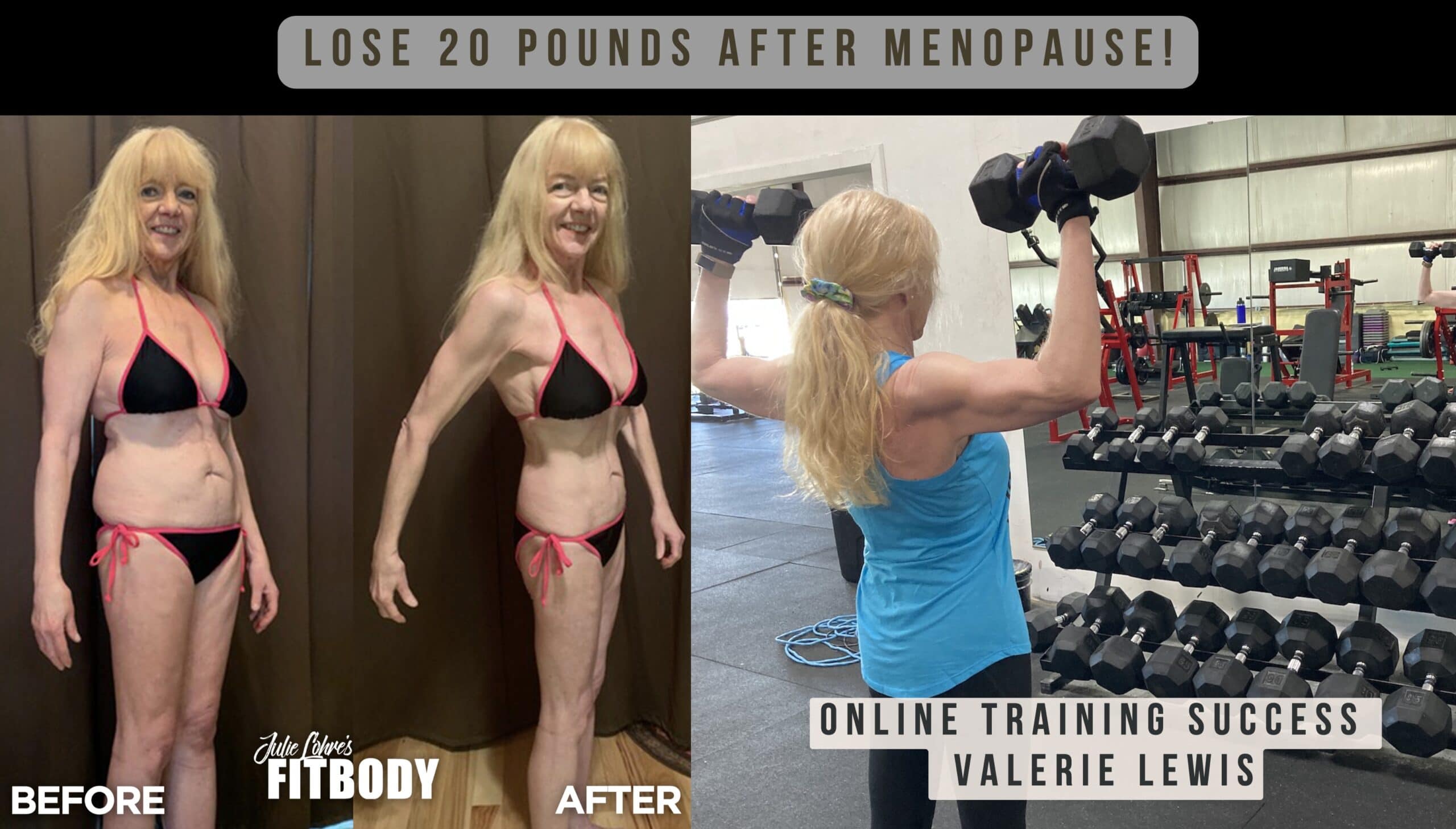How to Lose Weight During Menopause

Evidence Based Nutritional Strategies for Women in Menopause
Menopause is a natural phase that every woman goes through, but it can come with a range of challenges, including weight gain. The hormonal changes that occur during this time can affect metabolism, making it more challenging to lose weight. However, with lifestyle changes like a balanced nutrition plan and regular exercise, women can manage their weight and maintain their overall health and well-being. In this article, we will explore evidence based nutrition strategies for losing weight during menopause, backed by scientific sources.
Nutrition Strategies for Losing Weight during Menopause
#1. Start with BALANCED Nutrition, not the latest food fads.
While it might be tempting to try the latest food fad in your quest to lose weight during menopause, it is far better to stick with what has consistently worked for years… balanced nutrition. When it comes to losing weight during menopause, quick fixes and diet fads like keto or extreme calorie cutting might work for a few weeks but the are destined to backfire and leave you gaining back even more weight that you had initially gained. During this phase, hormonal changes can affect metabolism and make weight management more challenging. That’s why it’s important to focus on nourishing your body with the right nutrients. A balanced diet that includes whole foods, lean proteins, healthy fats, and plenty of fruits and vegetables is key. I recommend a diet that is 30% protein, 40% complex carbs, and 30% healthy fats.
“When I was 35-45, my life was extremely difficult and stressful and I took comfort in food and my weight got up to over 200 pounds. Since then, I had tried everything almost under the sun to lose weight. Now, I find that I am eating quite a bit more food than I used to… I guess (before working with FITBODY & Julie Lohre) I was eating way too many carbs and calories with no nutrients. Now, I never feel stuffed or starving. I feel perfectly comfortable all the time now. I can picture myself eating like this the rest of my life.”
Valerie Lewis, 59
#2. Mindful Eating and Portion Control During Menopause
It’s also important to practice mindful eating and portion control during menopause. Our bodies may require fewer calories during this time, so it’s essential to adjust portion sizes accordingly. Mindful eating involves paying attention to hunger and fullness cues, eating slowly, and savoring each bite. A study published in the Journal of the Academy of Nutrition and Dietetics found that mindful eating can help prevent overeating and promote a healthier relationship with food.
#3. Calcium and Vitamin D Essential Nutrients for Menopausal Women
Calcium and vitamin D are essential nutrients for maintaining bone health during menopause. A study published in the Journal of the Academy of Nutrition and Dietetics found that good sources of calcium include dairy products, leafy green vegetables, and fortified plant-based milks. Vitamin D can be obtained from sunlight exposure or through supplements. I highly recommend including Beverly International Fit Tabs to give you the right vitamins and minerals daily.
#4. Fill Up With Fiber
Managing blood sugar levels is crucial during menopause, as hormonal changes can affect insulin sensitivity and lead to fluctuations in blood sugar. Including high-fiber foods in your diet can help regulate blood sugar and maintain steady energy levels throughout the day. Whole grains, legumes, and non-starchy vegetables are excellent sources of fiber and can promote weight loss during menopause.

“I had gone through menopause and had thyroid issues which kept me sidelined. After getting all that under control I wanted to try competing again to see if my post menopausal body could handle it. I needed someone who knew their stuff… Julie Lohre was knowledgeable in all the areas I was looking for. Working with her was the best decision I could have made!”
Delora Beaver, 56
#5. Reduce Inflammation with Antioxidants
Foods rich in antioxidants can protect the body’s cells from oxidative stress and inflammation. Berries, green tea, and dark chocolate are excellent sources of antioxidants and can be enjoyed as part of a healthy diet.
#6. Get Your Timing Right!
Eating at regular intervals throughout the day is also essential during menopause. Skipping meals or going for long periods without eating can lead to imbalances in blood sugar levels, increased hunger, and a higher likelihood of overeating. Having three balanced meals and two to three small, nutrient-rich snacks between meals can help maintain a stable blood sugar level and avoid extreme hunger that often leads to unhealthy food choices.

“The progress I have made has been transformative! When I gained weight before, I just took it as a 50 year-old curse of a slowing metabolism. Not true! In 4 months, I achieved what I never thought was possible and did it in a healthy and natural way!”
Shawn Moran, 51
Foods to Avoid During Menopause
During menopause, women may experience various hormonal changes that can affect their overall health and well-being. While there is no specific list of foods that women should universally avoid during menopause, certain dietary considerations can help manage symptoms and support overall health. Here are some general guidelines:
- Spicy Foods: Spicy foods, such as hot peppers and spicy sauces, can trigger hot flashes and worsen night sweats in some women. It may be helpful to reduce or avoid spicy foods if you find them exacerbating your symptoms.
- Caffeine and Alcohol: Both caffeine and alcohol can disrupt sleep patterns and contribute to increased hot flashes and night sweats. Cutting back on or avoiding caffeinated beverages (like coffee, tea, and energy drinks) and alcohol may help manage these symptoms. Not to mention the empty calories that you cut out by skipping alcohol if you want to know how to lose weight during menopause.
- Sugary and Processed Foods: High intake of sugary and processed foods can lead to weight gain and increase the risk of chronic diseases such as heart disease and diabetes. As women’s metabolism tends to slow down during menopause, it is important to focus on a balanced diet that includes whole foods, fruits, vegetables, lean proteins, and healthy fats.
- High-Sodium Foods: Excessive sodium intake can contribute to water retention and bloating, which some women may already experience during menopause. Reducing the consumption of processed and packaged foods high in sodium can help alleviate these symptoms.
- High-Fat Dairy and Red Meat: Some studies suggest that a high intake of saturated fats from sources like red meat and full-fat dairy products may increase the risk of heart disease and negatively impact overall health. Choosing lean protein sources, such as fish, poultry, legumes, and low-fat dairy products, can be beneficial. I recommend my Online Training clients get about 30% of their daily calories from lean protein sources.
Menopause Diet for Weight Loss
In my years of create nutrition plans and diets for women over 40 and 50, I have found a good balance that helps preserve lean muscle mass while reducing bodyfat. Here is a menopause diet for weight loss that I recently put together for a woman that is 55 who weighs 170 pounds at 5’4″. She is looking to lose about 20 pounds and wants to see increases in her metabolism through the process. After several calculations, I created a menopause diet to help her with weight loss at 1500 calories per day.
Breakfast:
- 1 hard boiled egg
- 1 slice of Ezekiel toast
- 1 tablespoon of almond butter
- 1 small banana
- 1 cup of green tea
Snack:
- 2 scoops Beverly International UMP Protein shake mixed with water
- 1 ounce of almonds
- 1 medium-sized carrot, cut into sticks
Lunch:
- 4 ounces of grilled chicken breast
- 1 cup of mixed greens
- 1/4 cup of cherry tomatoes
- 1/4 cup of sliced cucumbers
- 2 tablespoons of balsamic vinaigrette dressing
- 1 small apple
Dinner:
- 4 ounces of baked salmon
- 1/2 cup of quinoa
- 1 cup of roasted vegetables (such as broccoli, cauliflower, and carrots) drizzled with 1 teaspoon of olive oil
- 1 cup of herbal tea or infused water (e.g., cucumber and mint)
Snack:
- 1 small 0 Fat Fage Greek yogurt
- 1/4 cup of fresh berries
- 1 tablespoon of chia seeds
Please remember that individual nutritional needs can vary. It is best to work directly with a nutritionist that can put together plans for your needs, goals, and body like I do with my Online Fitness & Nutrition Coaching for Women
Success Stories… Women who have lose weight and feel great over 40!
“Muscle was the key to help me feel better, have more energy, increase my strength, and to keep my body healthy and mobile for years to come.“
Jen Grant, 47
Now that we’ve covered strategies for losing weight during menopause, it’s important to highlight the scientific evidence that supports these recommendations. Here are some reputable sources that back the claims made in this podcast:
- The North American Menopause Society (NAMS) is a leading organization that provides evidence-based information and resources for menopause-related topics. They emphasize the importance of balanced nutrition, regular exercise, and maintaining a healthy weight during menopause to manage symptoms and promote overall health. (Source: https://www.menopause.org/for-women/menopauseflashes/menopause-symptoms-and-treatments/nutrition-weight-gain-and-menopause)
- The American Heart Association (AHA) recommends a balanced diet consisting of whole foods, lean proteins, healthy fats, and plenty of fruits and vegetables to support heart health and weight management, especially for women during menopause. They emphasize portion control, mindful eating, and regular physical activity as key components of a healthy lifestyle. (Source: https://www.heart.org/en/healthy-living/healthy-eating/eat-smart/nutrition-basics/menopause-and-heart-health)
- The Mayo Clinic, a renowned medical institution, provides comprehensive information on menopause and offers practical advice on nutrition, exercise, and weight management during this stage of life. They highlight the importance of maintaining bone health through calcium and vitamin D-rich foods, managing blood sugar levels with high-fiber foods, and incorporating regular exercise into daily routines. (Source: https://www.mayoclinic.org/healthy-lifestyle/womens-health/in-depth/menopause-weight-gain/art-20046058)
- The National Institute on Aging (NIA) discusses the benefits of exercise during menopause, including weight management, mood improvement, and the prevention of chronic diseases. They recommend a combination of aerobic exercises and strength training, similar to what was discussed in this podcast, for optimal results. (Source: https://www.nia.nih.gov/health/menopause-what-can-you-do-for-hot-flashes-and-other-menopausal-symptoms)



